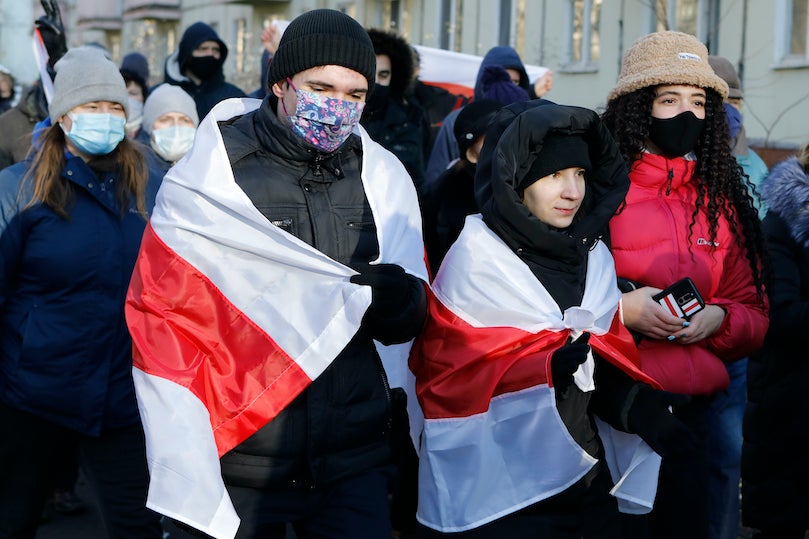Belarus Escalates Crackdown on Independent Journalism

On December 3, a court in Minsk stripped TUT.BY of its media license over allegedly spreading “false information.” TUT.BY is one of the most popular online outlets in Belarus, reporting on a broad range of social and political issues, including police abuse against peaceful protesters. According to Belarusian law, state authorities can revoke media accreditation after two warnings issued within one year. TUT.BY received its first warning on August 7, after publishing an article on voting procedure violations during that month’s presidential election. Three more warnings related to other articles followed over the next few months. In a lawsuit filed in September, Belarus’ Ministry of Information claimed TUT.BY published fake news discrediting the work of governmental institutions and “damaging state interests in the current socio-political context.” The outlet’s media credentials were suspended as of October 1, pending the court’s judgment.
There is little doubt last week’s ruling came in retaliation for TUT.BY’s coverage of sensitive issues, such as the vicious crackdown against peaceful protesters. While Belarusian law grants journalists with official accreditation protection against arrest when reporting on mass protests, many still routinely face detention, ill-treatment, and stifling fines. Working without credentials could be even more dangerous. In November, authorities opened a criminal case against TUT.BY’s correspondent Katerina Borisevich claiming she disclosed medical data belonging to Raman Bandarenka, a protest activist beaten to death on November 11 allegedly by plain clothed police officers or their proxies. According to the Prosecutor General’s Office, Borisevich could not avail of protection as a journalist due to the suspension of TUT.BY’s media credentials. She could face up to three years in prison. Belarus has a long record of using the rules on accreditation to stifle freedom of expression. Authorities often arbitrarily deny accreditation to journalists working for foreign media, block media access to official events and fine journalists for “illegal production and distribution of mass media products.” Belarusian authorities should stop using accreditation rules to silence journalists reporting on sensitive issues, including human rights violations.
They should also comply with their international human rights obligations to refrain from interfering with freedom of the press and to foster an open working climate for journalists with or without state accreditation. .
Read the full article at the original website
References:
- https://news.tut.by/economics/710002.html
- https://br-analytics.ru/mediatrends/media/
- https://pravo.by/document/?guid=3871&p0=h10800427
- https://news.tut.by/economics/695859.html
- https://news.tut.by/society/699905.html
- https://news.tut.by/society/701850.html
- https://news.tut.by/society/708980.html
- https://www.hrw.org/news/2020/09/15/belarus-systematic-beatings-torture-protesters
- https://baj.by/en/analytics/repressions-against-journalists-belarus-2020-chart
- https://news.tut.by/society/702337.html
- https://baj.by/en/content/baj-demands-immediate-release-tutby-reporter-katsiaryna-barysevich
- https://www.hrw.org/news/2020/11/13/man-killed-protecting-symbols-peaceful-protests-belarus
- https://news.tut.by/economics/709318.html
- https://news.tut.by/society/709616.html
- https://www.hrw.org/world-report/2020/country-chapters/belarus
- https://baj.by/en/analytics/human-rights-watch-media-under-attack-european-games-loom
